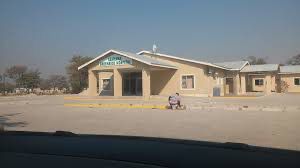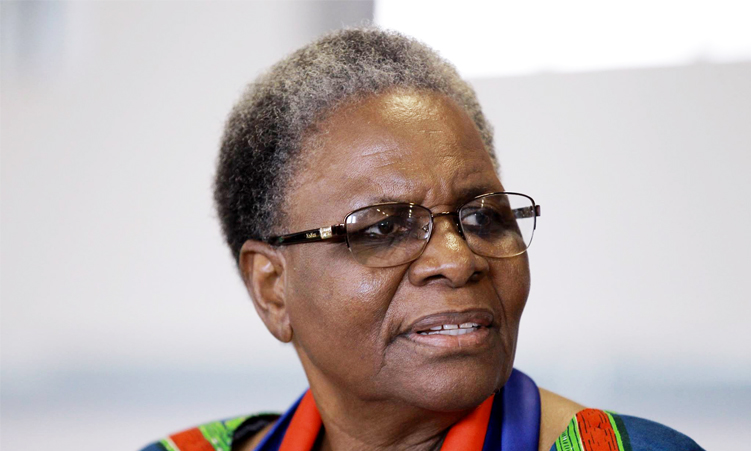THE land reform process in Namibia should be evolutionary and not revolutionary, as transformation of the agricultural sector took time and could not be achieved overnight, a commercial farmer has urged.
Speaking at a Farmers’ Day on Friday, an event with presentations and topical talks on farming, the president of the Namibia Agricultural Union (NAU), Raimar von Hase, said there was a misconception among large sectors of the population about what land reform could do for them. “People pin their hopes on a piece of land and think it will make poverty disappear, but nobody should venture into agriculture if they are not passionate about it,” Von Hase stated.He was speaking at the first Farmers’ Day organised by the NAU’s award winner for the best emerging commercial farmer of 2006, a new award which was issued last year.Former Deputy Finance Minister Clara Bohitile, who ventured into fulltime farming in March 2005, after she did not make into the National Assembly on the Swapo party list, won the prize.Due to the resignation of Swapo Chief Whip Ben Amathila from Parliament last month, Bohitile returned to the National Assembly as she was next on the list.She bought her farm through an Affirmative Action loan from AgriBank.According to Von Hase, despite attempts by Government to support resettlement beneficiaries bought for them by the State, very few successes could be recorded since the land reform started in earnest some 10 years ago.”We would make a big mistake in Namibia if we gave up productive farms (through resettlement),” Von Hase cautioned.Land reform was a gradual process, he said.”If it takes time, so be it, land reform should be evolutionary and not revolutionary,” he told about 50 commercial and a few emerging farmers who attended, among them Deputy Justice Minister Utoni Nujoma and Deputy Education Minister Dr Becky Ndjoze-Ojo.”Farming methods must also be adjusted to global warming, as dry areas in Namibia will become ever drier soon,” he noted.The NAU president further announced that the European Union had provided N$10 million for a joint programme of the NAU and the Namibia National Farmers’ Union (NNFU) to provide training for emerging commercial farmers.The two organisations jointly drafted the proposal to the EU and submitted it a year ago.Bohitile, who hosted the event, said farming required consistent and hard work.”Apart from that, good neighbourliness is another important aspect.We must be able to rely on each other for help and advice.Today I might have a fire on my farm and require help, but tomorrow it could hit my neighbour and I go with my labourers to help him.”Bohitile said she was welcomed with open arms in the predominantly white farming area.Guest speaker Olga Nghatsane from South Africa, who won a similar award last year as best emerging black woman farmer, said South Africans could learn from Namibia when it came to interaction between emerging and established farmers.”In South Africa we are still afraid of each other and thus hardly know one another,” she said.Nghatsane runs a successful poultry farm in Mpumalanga province.”People pin their hopes on a piece of land and think it will make poverty disappear, but nobody should venture into agriculture if they are not passionate about it,” Von Hase stated.He was speaking at the first Farmers’ Day organised by the NAU’s award winner for the best emerging commercial farmer of 2006, a new award which was issued last year.Former Deputy Finance Minister Clara Bohitile, who ventured into fulltime farming in March 2005, after she did not make into the National Assembly on the Swapo party list, won the prize.Due to the resignation of Swapo Chief Whip Ben Amathila from Parliament last month, Bohitile returned to the National Assembly as she was next on the list.She bought her farm through an Affirmative Action loan from AgriBank.According to Von Hase, despite attempts by Government to support resettlement beneficiaries bought for them by the State, very few successes could be recorded since the land reform started in earnest some 10 years ago.”We would make a big mistake in Namibia if we gave up productive farms (through resettlement),” Von Hase cautioned.Land reform was a gradual process, he said.”If it takes time, so be it, land reform should be evolutionary and not revolutionary,” he told about 50 commercial and a few emerging farmers who attended, among them Deputy Justice Minister Utoni Nujoma and Deputy Education Minister Dr Becky Ndjoze-Ojo.”Farming methods must also be adjusted to global warming, as dry areas in Namibia will become ever drier soon,” he noted.The NAU president further announced that the European Union had provided N$10 million for a joint programme of the NAU and the Namibia National Farmers’ Union (NNFU) to provide training for emerging commercial farmers.The two organisations jointly drafted the proposal to the EU and submitted it a year ago.Bohitile, who hosted the event, said farming required consistent and hard work.”Apart from that, good neighbourliness is another important aspect.We must be able to rely on each other for help and advice.Today I might have a fire on my farm and require help, but tomorrow it could hit my neighbour and I go with my labourers to help him.”Bohitile said she was welcomed with open arms in the predominantly white farming area.Guest speaker Olga Nghatsane from South Africa, who won a similar award last year as best emerging black woman farmer, said South Africans could learn from Namibia when it came to interaction between emerging and established farmers.”In South Africa we are still afraid of each other and thus hardly know one another,” she said.Nghatsane runs a successful poultry farm in Mpumalanga province.
Stay informed with The Namibian – your source for credible journalism. Get in-depth reporting and opinions for
only N$85 a month. Invest in journalism, invest in democracy –
Subscribe Now!






